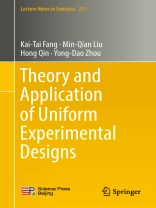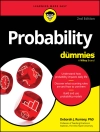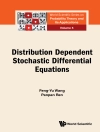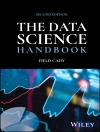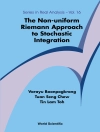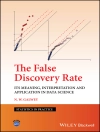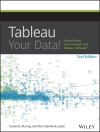The book provides necessary knowledge for readers interested in developing the theory of uniform experimental design. It discusses measures of uniformity, various construction methods of uniform designs, modeling techniques, design and modeling for experiments with mixtures, and the usefulness of the uniformity in block, factorial and supersaturated designs.
Experimental design is an important branch of statistics with a long history, and is extremely useful in multi-factor experiments. Involving rich methodologies and various designs, it has played a key role in industry, technology, sciences and various other fields. A design that chooses experimental points uniformly scattered on the domain is known as uniform experimental design, and uniform experimental design can be regarded as a fractional factorial design with model uncertainty, a space-filling design for computer experiments, a robust design against the model specification, and a supersaturated design and can be applied to experiments with mixtures.
Cuprins
Introduction.- Uniformity Criteria.- Construction of Uniform Designs-Deterministic Methods.- Construction of Uniform Designs-Algorithmic Optimization Methods.- Modeling Techniques.- Connections Between Uniformity and Other Design Criteria.- Applications of Uniformity in Other Design Types.- Uniform Design for Experiments with Mixtures.-
Despre autor
Kai-Tai Fang is a professor at the BNU-HKBU United International college and is a research professor at the Institute of Applied Mathematics, Chinese Academy of Sciences, Beijing, China.
Min-Qian Liu is a professor at the Institute of Statistics, Nankai University, Tianjin, China
Hong Qin is a professor at the Faculty of Mathematics and Statistics, Central China Normal University, Wuhan, China
Yong-Dao Zhou is a professor at the Institute of Statistics, Nankai University, Tianjin, China
